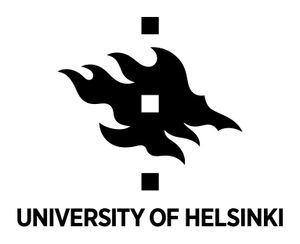“Moral Machines? Ethics and Politics of the Digital World” conference addresses the ethical and political issues of digitalization

The international conference “Moral Machines? Ethics and Politics of the Digital World” concentrates on the various aspects of the contemporary digital world. We are especially interested in the idea that despite everything they can do, the machines do not really think, at least not like us. So, what is thinking in the digital world? How does the digital machine “think”?
Bringing together perspectives of philosophy, literature, art, and social and political sciences, the international conference addresses the timely issues of the morality of machines, thinking in the digital world and the ways of controlling that world.
“Moral Machines? Ethics and Politics of the Digital World” conference is held at the Helsinki Collegium for Advanced Studies (Fabianinkatu 24, 3rd floor) as well as in Think Corner (Yliopistonkatu 4).There is also an artistic evening programme which is open to the public on Wednesday March 6th from 6pm to 8pm on Think Corner Stage. The conference is in English.
The main keynote speakers N. Katherine Hayles (Duke University) and Bernard Stiegler (University of Compiègne) have both specialized in digitalization. Hayles has shown that for a long time, computers were built with the assumption that they imitate human thought – while in fact, the machine’s capability of non-embodied and non-conscious cognition sets it apart from everything we call thinking. For his part, Bernard Stiegler has shown how technics in general and digital technologies in particular are specific forms of memory that is externalized and made public – and that, at the same time, becomes very different from and alien to individual human consciousness. In addition to Hayles and Stiegler, the conference includes keynotes from Erich Hörl (Leuphana University Lüneburg), Maria Mäkelä (Tampere University), Frédéric Neyrat (University of Wisconsin-Madison) and François-David Sebbah(Paris Nanterre University).
The conference has received funding from the Federation of Finnish Learned Societies (Tieteellisten seurain valtuuskunta), Institut Français de Finlande (Ranskan instituutti) and the project Creative Adaptation to Wicked Socio-environmental Disruptions (WISE; Strategic Research Council at the Academy of Finland in Tampere University).
Welcome!
Contacts
Susanna Lindberg, +358 50 448 2075, email susanna.lindberg@helsinki.fi
Hanna-Riikka Roine, +358 50 415 4503, email hanna.roine@helsinki.fi
Images

Links
About University of Helsinki
 University of Helsinki
University of HelsinkiP.O. Box 4 (Yliopistonkatu 3)
00014 University of Helsinki, Finland
http://www.helsinki.fi/en
The University of Helsinki is one of the world’s leading multidisciplinary research universities, renowned for its high-quality teaching, research and innovation. It is proud to be constantly ranked among the top one hundred best universities in the world.
The university has an enrollment of over 35 000 students and it offers a wide range of Master’s programmes taught in English. Established in 1640, the University of Helsinki is the oldest university in Finland.
Subscribe to releases from University of Helsinki
Subscribe to all the latest releases from University of Helsinki by registering your e-mail address below. You can unsubscribe at any time.
Latest releases from University of Helsinki
AI boom requires new benchmarks for natural language understanding6.2.2024 08:00:00 EET | Press release
Aarne Talman’s timely research delves into the meaning of language understanding, its measurement and the weaknesses of current measurement benchmarks.
The Helsinki Collegium for Advanced Studies is a home base for international researcher encounters and a pioneer in the humanities and social sciences in Finland10.6.2022 09:00:00 EEST | Press release
The Helsinki Collegium for Advanced Studies at the University of Helsinki celebrates its 20th anniversary on 15 June, with star philosopher Martha Nussbaum as the anniversary speaker.
Globalization, Sustainability and the War in Ukraine - How does sustainability science explain past and future trajectories?31.5.2022 08:54:56 EEST | Press release
In February 2022, the global peace was shattered by the Russo-Ukrainian conflict that escalated into aggressive Russian invasion into Ukraine. While the situation is widely discussed in the media, not much attention has been given to the perspectives of sustainability science.
University of Helsinki's new open AI in Society MOOC will consider technology´s issues and challenges30.5.2022 09:03:41 EEST | Press release
University of Helsinki's Una Europa AI in Society Massive Open Online Course (MOOC) creates critical awareness of the basics of AI and its related ethical issues as well as its impacts on different sectors of society, including justice and jurisprudence, health care, and democratic participation. The MOOC examines how society could cope with these issues, and how the societal impact and relevant values can be considered in design, implementation, and deployment of AI.
University of Helsinki offers online course Ethics of AI in Finnish and Swedish23.11.2021 09:00:00 EET | Press release
The open and free online course Ethics of AI is designed to help us understand what it means to use AI ethically, and what it requires from society and individuals. The course uses examples of practical issues from its collaboration partners.
In our pressroom you can read all our latest releases, find our press contacts, images, documents and other relevant information about us.
Visit our pressroom